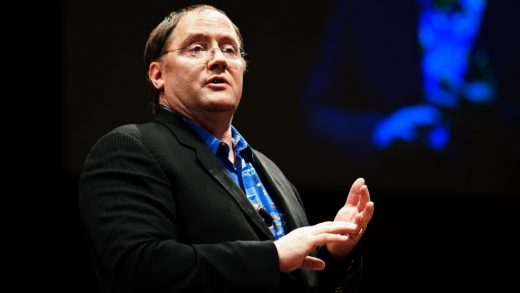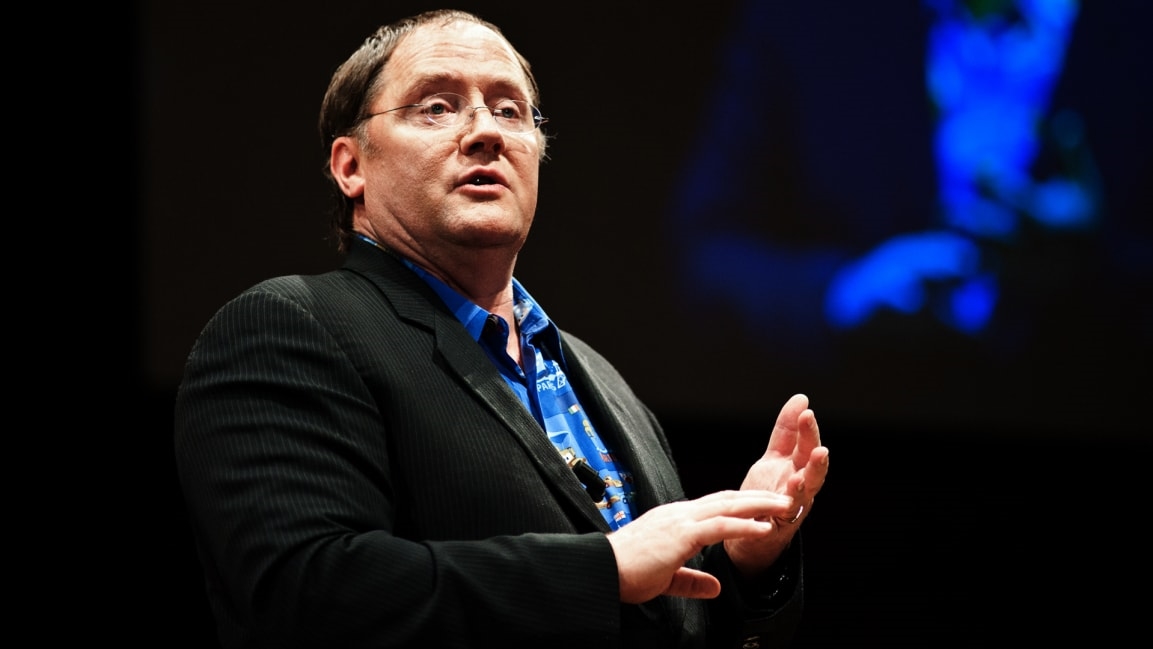John Lasseter comes out of #MeToo hiding to run animation at Skydance
John Lasseter, the director of Toy Story and Cars and the creative executive who ran Pixar and Walt Disney Animation until #MeToo revelations led to his suspension and then departure, will be the new head of Skydance Animation, a division of David Ellison’s Skydance Media company.
The news comes less than a year after Lasseter stepped down from Disney following accusations of misconduct with female employees. Since his departure last summer, Lasseter virtually disappeared from Hollywood and Silicon Valley, where Pixar is based, but had resurfaced in recent months, reportedly having a two-hour meeting with Ari Emanuel, the co-head of Endeavor, and making appearances around his Northern California home.
Sources say he feels betrayed by Disney’s decision not to allow him to return after his months-long sabbatical and that he did not feel his behavior merited career exile.
His contract with Disney ended at the end of December 2018, so there had been speculation that he would resurface. Until Wednesday’s announcement, though, first reported by the Hollywood Reporter, it was unclear if and where he would land.
The connection with Skydance isn’t entirely surprising. Ellison is the son of Oracle cofounder and billionaire Larry Ellison, and has said that the late Steve Jobs–who cofounded Pixar–was a mentor. In an interview with Slash Film, Ellison said that the philosophy at Skydance “was really derived from Pixar . . . I literally got to see Pixar built from the ground up when I was a kid. And that creative process they have over there . . . Those rooms are unbelievable. They have a group of tremendous filmmakers that are all incredibly honest with one another about exactly what they think, which allows them to really elevate the work.”
In a letter to employees, Ellison wrote: “I know many of you are aware of John’s admitted mistakes in his prior role helming those studios. John has been forthright in taking ownership of his behavior, apologized for his actions, and has spent the past year on sabbatical analyzing and improving his workplace behavior.”
He also said that Skydance had hired an outside counsel “to thoroughly investigate the allegations, which we considered serious and have warranted our full attention as we made this important decision.” He said that Skydance’s senior leadership team and I had “carefully evaluated the findings of this extensive investigation.
Let me be clear: we have not entered into this decision lightly.
While we would never minimize anyone’s subjective views on behavior, we are confident after many substantive conversations with John, and as the investigation has affirmed, that his mistakes have been recognized. We are certain that John has learned valuable lessons and is ready to prove his capabilities as a leader and a colleague. And he has given his assurance that he will comport himself in a wholly professional manner that is the expectation of every Skydance colleague and partner.
Ellison formed Skydance in 2010 but has maintained a quiet presence in Hollywood, as has his sister, Megan Ellison, founder of Annapurna Pictures. But unlike his sibling, whose company is struggling after a string of high-budget flops, David Ellison has had a steadier track record. Skydance has been a cofinancing partner with Paramount on such action franchises as Star Trek and Mission: Impossible, and it was a producer on the hit Amazon series Jack Ryan as well as Netflix’s Grace and Frankie.
Last year, Skydance began beefing up its animation division with new hires. It has said that it wants to develop and produce a slate of high-end feature films and TV series in partnership with Spain’s Ilion Animation Studios. Its first two features are Luck, which will be released in 2021, and Split.
The big question now is how much talent Lasseter will bring with him from Pixar and Disney. Although he has detractors, he still has a cadre of loyalists. Sources say Disney has been locking down animation folks under long-term contracts ever since Lasseter’s departure. It’s unclear whether that has been happening at Pixar, where the company has traditionally not had most employees on contract.
(26)



